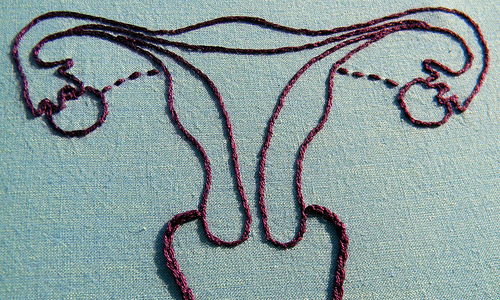All You Wanted To Know About Ovarian Cysts

Ovarian cyst. This is one term that has been giving you sleepless nights, is it? Don’t worry. You are not the only one who gets scared when this word comes to mind. Recent studies state, nearly every premenopausal woman in America notices ovarian cysts. Hence, we have come up with this article to throw light upon ovarian cysts and give a compiled information on this medical condition and prepare you for whatever will come your way.
Ovarian cysts are sacs filled with fluid that settle inside or on the surface of the ovary. If a follicle inside the ovary happens to be larger than 2 centimeters, it is termed as an ovarian cyst. Most of these cysts are totally harmless and need no treatment at all. They disappear within a few months without even making you realize of their presence.
It is the non-functional, ruptured cysts that are a cause to worry. These cysts can cause severe symptoms that may affect your day-to-day life. Hence, it’s best to visit your gynecologist as often as possible. The first and foremost symptom of an ovarian cyst is frequent urination. This happens because if the ovarian cyst grows in size, its pressure falls upon the urinary bladder which reduces its capacity. The other symptoms of ovarian cysts include irregular periods, pelvic pain during and after periods and also while having sex. Heaviness in the abdomen, nausea, vomiting and breast tenderness are some other symptoms of ovarian cysts.
Ovarian cysts are usually treated with pain relievers and birth control pills. If the ovarian cyst grows in size and hampers your day-to-day lifestyle, it is eliminated from the body by way of surgery. But, most doctors wait for at least two to three menstrual cycles for that to happen. It’s important to visit a good doctor because any complication during the surgery can lead to the removal of the ovaries and the uterus. It may also lead to cancer. Hence, it’s important to keep a check on the symptoms mentioned above and to go for pelvic examinations on a regular basis to nip it in the bud.





